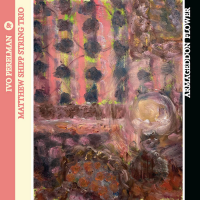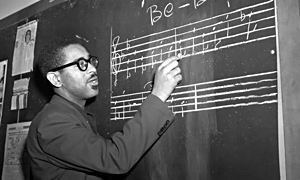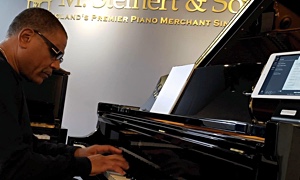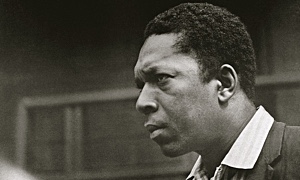Home » Jazz Articles » Jazz Primer » What is Jazz? Good Question...
What is Jazz? Good Question...
Wynton Marsalis
trumpetb.1961

Pat Metheny
guitarb.1954

Kenny G
saxophone, sopranob.1956
Certainly, the question is a highly subjective one. Ask 100 different people "What is jazz?" and you're likely to get 100 different answers. The debate becomes even more confusing given the fact that the history of jazz is relatively well documented.
It's no secret that jazz music started in the black ghettos of New Orleans at the end of the 19th century. In the 1920s jazz moved up river to St. Louis, then to Chicago and New York as African Americans migrated north in search of a better life. The 1930s saw the evolution of swing bands like those lead by

Duke Ellington
piano1899 - 1974

Count Basie
piano1904 - 1984

Louis Armstrong
trumpet and vocals1901 - 1971

Coleman Hawkins
saxophone, tenor1904 - 1969

Lester Young
saxophone1909 - 1959

Charlie Parker
saxophone, alto1920 - 1955

Dizzy Gillespie
trumpet1917 - 1993
Why then, less than half a century later, can't we agree on a working definition? Part of the reason is because jazz has always been and remains today a living art form, ever changing and ever growing. Subsequently, after Bird took bebop to its logical conclusion, musicians like

Miles Davis
trumpet1926 - 1991

Ornette Coleman
saxophone, alto1930 - 2015

John Coltrane
saxophone1926 - 1967

Modern Jazz Quartet
band / ensemble / orchestrab.1952
In their effort to market these musical voyages, major record companies have added to the mystification, bombarding us with labels to ponder: Contemporary jazz, mainstream jazz, smooth jazz, alternative jazz, avant-garde jazz, Latin jazz, fusion, etc. At present, it seems that there are almost as many names for jazz as there are jazz groups. Still puzzled? Me too.
But not to worry.
Once again, each one of us is left with our own purely subjective views on jazz. My guess is that, if asked, even musicians—the men and women who are currently dedicating their life to creating this music—would likely disagree on the meaning of jazz.
So perhaps a better question is: What do you like? From

Jelly Roll Morton
piano1890 - 1941

Lee Morgan
trumpet1938 - 1972

James P. Johnson
piano1894 - 1955

John Zorn
saxophone, altob.1953
Yet, one thing is sure: Jazz remains America's only original living art form. Today, its influence envelops the globe. It's expressive. It's enriching. Call it what you like—jazz is here to stay.
Tags
Jazz Primer
Jason West
United States
wynton marsalis
pat metheny
Kenny G
duke ellington
Count Basie
Louis Armstrong
Coleman Hawkins
Lester Young
Charlie Parker
Dizzy Gillespie
Miles Davis
Ornette Coleman
John Coltrane
Modern Jazz Quartet
Jelly Roll Morton
lee morgan
James P. Johnson
john zorn
Comments
PREVIOUS / NEXT
Support All About Jazz
 All About Jazz has been a pillar of jazz since 1995, championing it as an art form and, more importantly, supporting the musicians who make it. Our enduring commitment has made "AAJ" one of the most culturally important websites of its kind, read by hundreds of thousands of fans, musicians and industry figures every month.
All About Jazz has been a pillar of jazz since 1995, championing it as an art form and, more importantly, supporting the musicians who make it. Our enduring commitment has made "AAJ" one of the most culturally important websites of its kind, read by hundreds of thousands of fans, musicians and industry figures every month.





 Buy Now
Buy Now






















